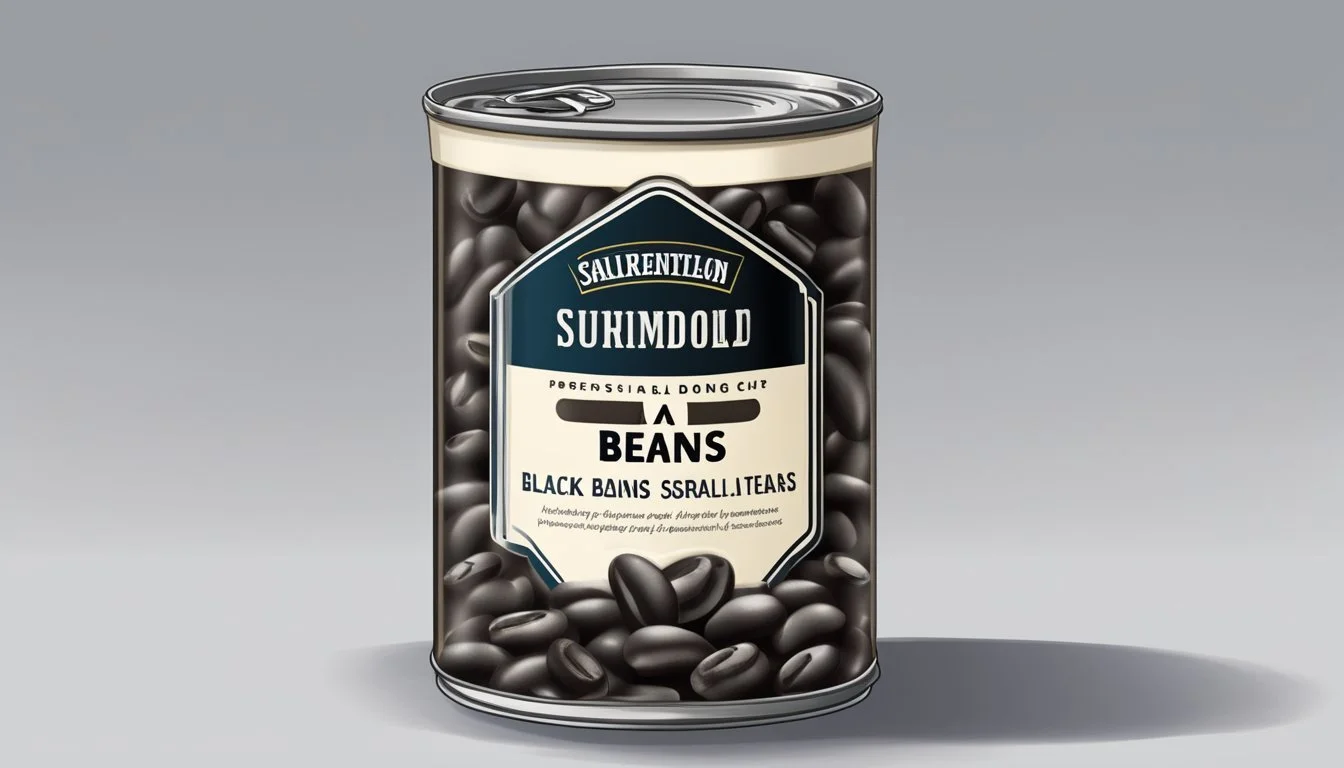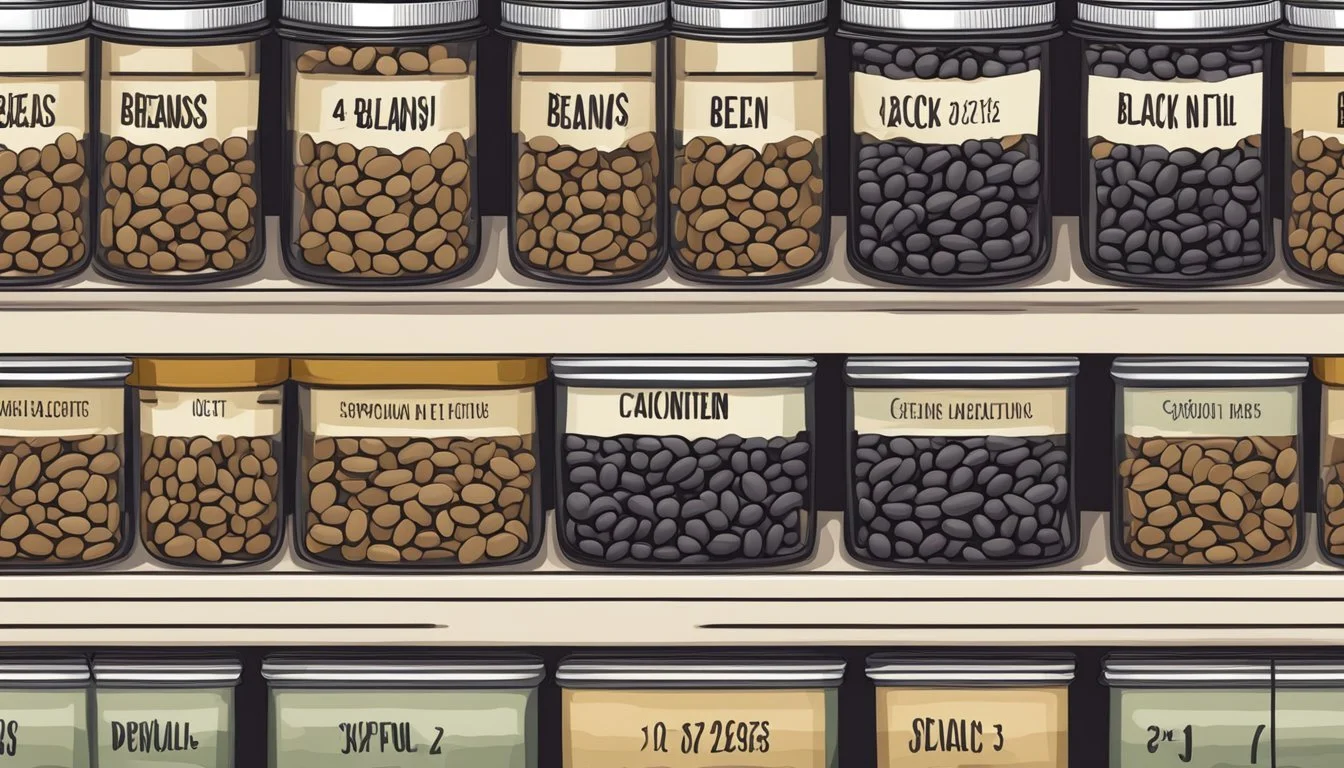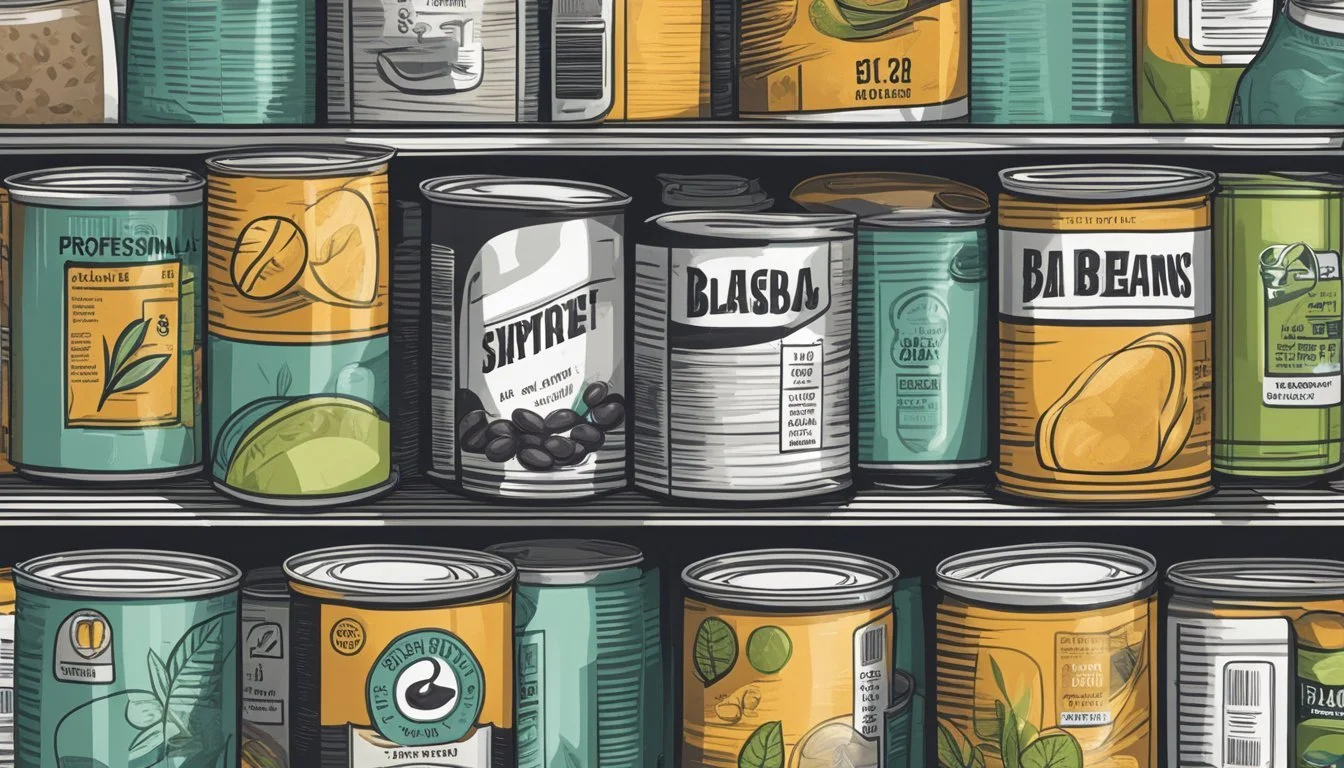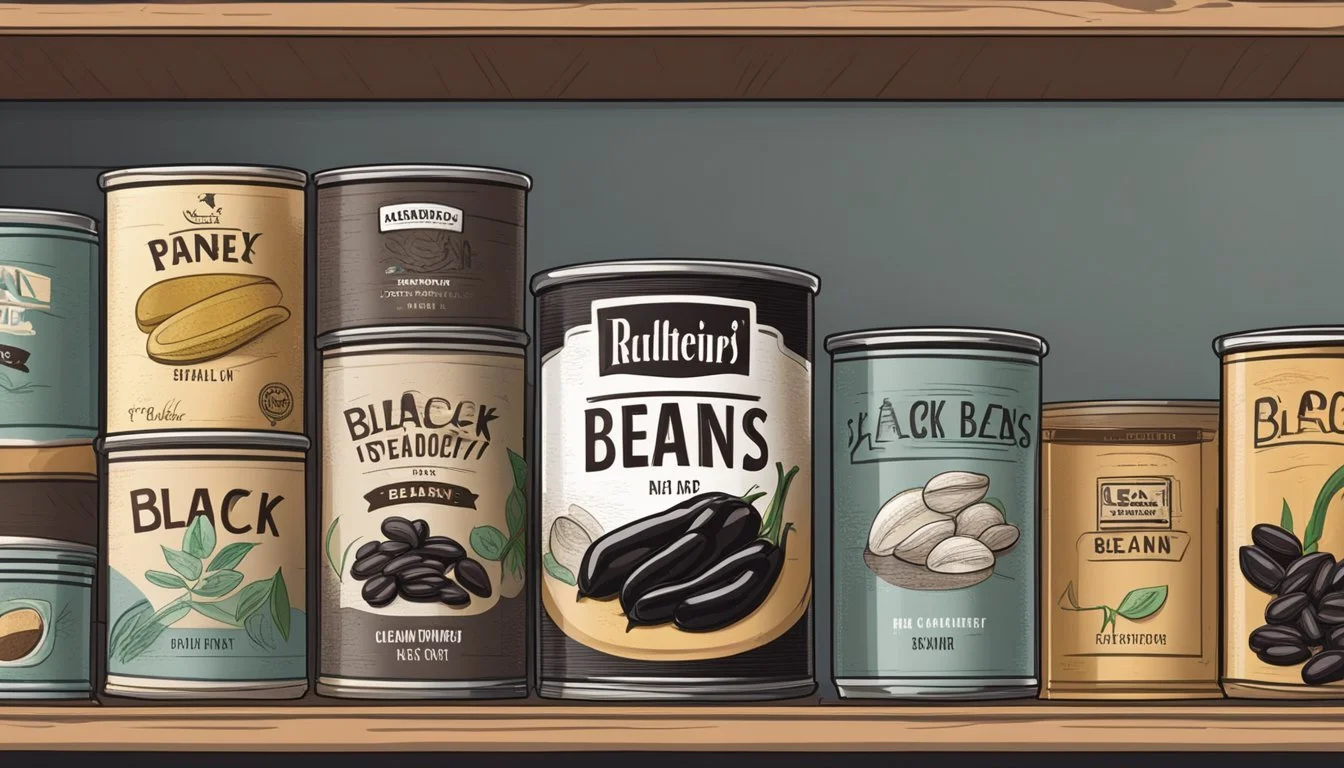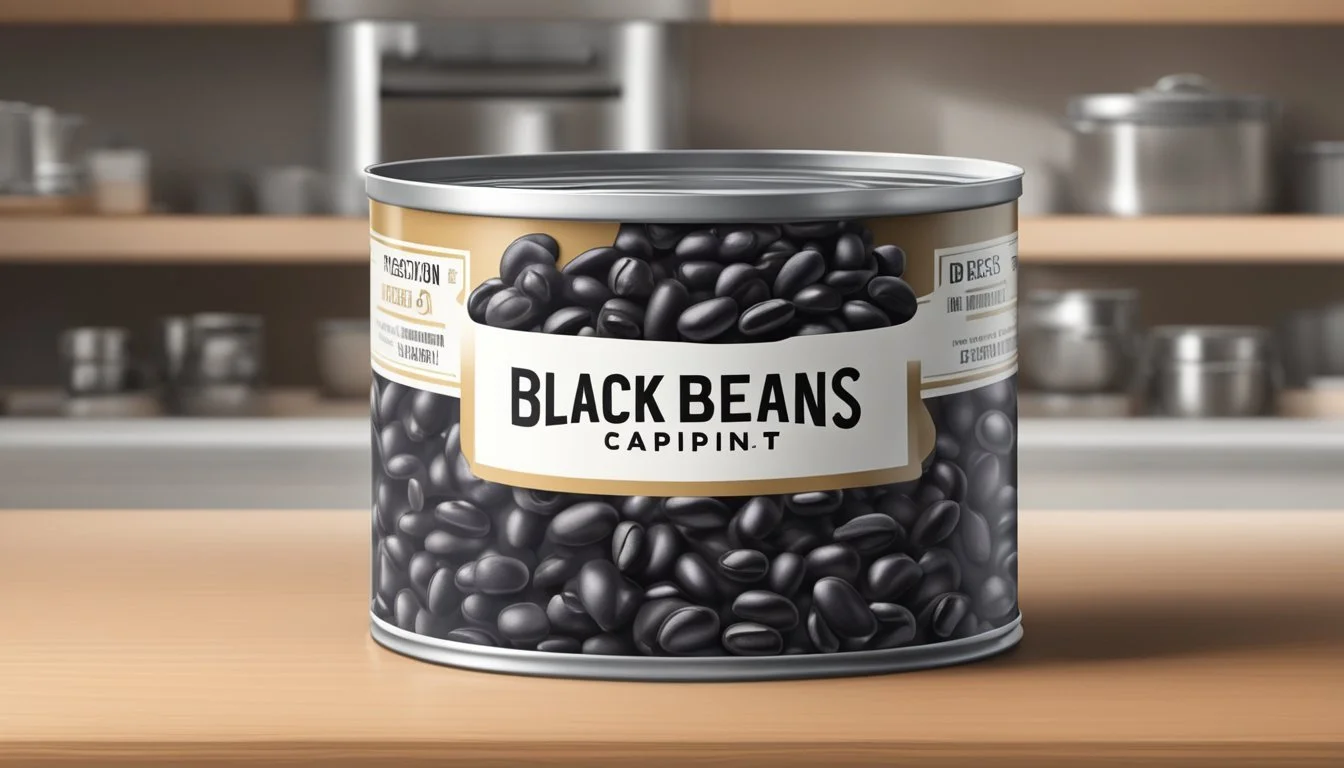Does Black Beans Go Bad?
Understanding Shelf Life and Storage
Black beans, a staple in many households, are cherished for their rich flavor and nutritional benefits. However, an important question often arises: do black beans go bad? Yes, black beans can spoil if not stored properly. For those storing dried black beans, it's essential to keep them in a cool, dry place to maximize their shelf life.
The shelf life of dried black beans can extend up to 2-3 years under optimal conditions, but they may lose their quality over time. If you notice a strange odor, mold, or discoloration, it's a clear signal that the beans are no longer safe to consume. It's crucial to use your senses to detect any signs of spoilage.
Canned black beans also have their own shelf life considerations. Any cans that are leaking, rusted, or bulging should be discarded to ensure food safety. Paying attention to these details helps preserve the beans' nutritional value and ensures a healthy addition to your meals.
Understanding Black Beans
Black beans, a type of legume, are praised for their nutritional value and versatility in various recipes. These beans are a staple in many diets, particularly for those seeking plant-based protein options.
Classification and Nutritional Profile
Black beans belong to the legume family, which also includes lentils, chickpeas, and peas. They are often chosen for their high protein content, making them an excellent meat substitute.
A 1-cup serving of cooked black beans provides approximately:
Protein: 15 grams
Fiber: 15 grams
Calories: 227
Folate (Vitamin B9): 64% of the RDI
Iron: 20% of the RDI
Magnesium: 30% of the RDI
These beans are rich in essential nutrients such as vitamins, minerals, and antioxidants. The protein and fiber content supports muscle growth and aids digestion respectively.
Popularity in Diet and Recipes
Black beans are a popular ingredient in various dishes due to their versatility. They can be found in soups, stews, salads, and more.
Recipes commonly feature black beans in plant-based and vegetarian meals, adding both flavor and nutritional benefits.
A few popular dishes include:
Black bean soup
Black bean and corn salad
Veggie burritos with black beans
The plant-based nature of these beans makes them a favorite in vegan and vegetarian diets. They provide a hearty texture and earthy flavor, enhancing the taste and nutritional profile of many meals.
Quality Indicators and Storage
Ensuring the quality and proper storage of black beans helps maintain their freshness and nutritional value. By understanding how to identify spoilage and employ correct storage techniques, one can prolong their shelf life and enjoy them safely.
Identifying Freshness and Signs of Spoilage
Fresh black beans typically have a uniform color and smooth texture. Signs of spoilage include visible mold, sliminess, or discoloration. Black beans that have gone bad might emit a rancid or foul odor. It's essential to discard any beans showing these indicators.
Visual Inspection: Look for mold or unusual spots.
Smell: Fresh beans have a neutral smell, while spoiled ones can smell rancid.
Texture: Spoiled beans might feel slimy or unusually soft.
Proper Storage Techniques
Storing black beans correctly involves using airtight containers and controlling environmental factors. For cooked black beans, refrigeration in airtight containers keeps them safe for 3 to 7 days. For uncooked dry beans, it's best to store them in a cool, dark place.
Refrigeration: Use airtight containers to store cooked beans in the refrigerator.
Pantry Storage: Keep dry beans in a cool, dry pantry, away from direct light.
Freezing: Cooked black beans can be frozen for extended storage. Use freezer-safe containers to prevent freezer burn.
Impact of Storage Conditions
Storage conditions greatly influence the shelf life and quality of black beans. Exposure to moisture, air, and light can speed up spoilage. Keeping beans at a consistent temperature is crucial. Ideally, dry beans should be stored at temperatures between 50-70°F (10-21°C) to prevent quality degradation.
Temperature: Maintain a stable, cool environment.
Light Control: Store in a dark place to prevent light exposure.
Moisture: Ensure beans remain dry to avoid mold growth.
Pests and Insects: Use airtight containers to protect against pests.
Shelf Life and Consumption
Black beans can last for varying durations depending on their form and storage methods. Proper handling ensures safe consumption and minimizes health risks from spoilage.
Shelf Life of Various Forms
Dried Beans: When stored in a cool, dry place, dried black beans can last for up to two years. Moisture and warm temperatures can significantly reduce their shelf life. Airtight containers help prevent contamination and spoilage.
Canned Black Beans: Unopened canned black beans generally have a shelf life of about 2-5 years. Check the expiration date on the can for specific durations. Once opened, consume within 3-4 days, storing them in the refrigerator.
Cooked Black Beans: Refrigerated cooked black beans typically last 3-7 days in an airtight container. Freezing extends their shelf life up to six months, ensuring they retain quality and safety.
Determining Consumption Safety
Signs of Spoilage: Spoiled black beans may emit an off odor, develop mold, or display changes in texture. Be cautious of these signs to avoid consumption-related illnesses.
Form Spoilage Indicators Dried Beans Unusual smell, discoloration, insect presence Canned Black Beans Bulging cans, leaks, severe dents Cooked Black Beans Sour smell, slimy texture, mold
Health Risks: Consuming spoiled black beans can lead to foodborne illnesses. Harmful bacteria like Clostridium botulinum and Salmonella can cause severe health issues, including food poisoning. Always adhere to proper storage practices and heed expiration dates to minimize risks.
Proper storage and regular checks for spoilage ensure the safe consumption of black beans, thereby preventing potential health hazards.
Preparation and Cooking
Preparing and cooking black beans requires soaking dried beans and following recipes that best capture their flavor and texture. These steps ensure that black beans are nutritious and delicious in various meals.
Pre-Soaking and Cooking Dried Beans
Soaking dried black beans before cooking is crucial to achieving a tender texture. Place the beans in a bowl and add sufficient water, about three times the volume of the beans. Soak for 8-12 hours or overnight. This helps soften the beans and reduces cooking time.
Cooking Methods:
Stovetop: Rinse soaked beans and transfer to a pot. Cover with fresh water, bring to a boil, then simmer for 1-2 hours until tender.
Pressure Cooker: Reduces cooking time significantly. Cook soaked beans for about 25-30 minutes.
Slow Cooker: Ideal for hands-free cooking. Cook on low for 6-8 hours or on high for 3-4 hours.
Recipes and Uses in Meals
Black beans are versatile and can be used in a variety of dishes that enhance their nutty flavor and creamy texture. They are an excellent source of protein, fiber, and essential nutrients.
Popular Recipes:
Black Bean Soup: Sauté onions, garlic, and spices. Add cooked beans and broth, then simmer until flavors meld.
Black Bean Salad: Mix cooked beans with corn, bell peppers, onions, cilantro, and lime juice for a refreshing dish.
Burritos and Tacos: Incorporate seasoned black beans for a hearty filling.
Veggie Burgers: Blend cooked black beans with breadcrumbs, spices, and vegetables. Form into patties and cook until crispy.
Black beans add both nutrition and flavor to meals, making them a staple in many kitchens.
Purchasing and Planning
When buying black beans, it is critical to choose high-quality products and consider various factors that affect long-term storage and consumption.
Selecting the Best Quality
Look for canned black beans with an expiration date that provides a longer shelf life. Commercially canned black beans typically last 2-3 years, while home-canned beans last around 1 year.
Check the can for any dents, rust, or damage. A well-sealed, undamaged can ensures that the beans inside remain safe and of good quality. For dried black beans, ensure they are free from mold, discoloration, and strange odors.
Factors Affecting Purchase
When planning to buy black beans, consider the date of purchase and how long you plan to store them. Store unopened canned beans in a cool, dry place to maintain their quality. Once opened, refrigerate them and use within 3-4 days to avoid spoilage.
Think about how often you consume black beans to determine the quantity to buy. Purchasing in bulk might make sense if they are a staple in your diet due to their nutritional value and versatility in various dishes.
Preservation Techniques
When preserving black beans, effective methods include freezing and canning, which help maintain their quality and safety. Proper handling and storage conditions are crucial for extending their shelf life.
Freezing and Canning at Home
Freezing and canning are common techniques for preserving black beans.
Freezing: Start by blanching the beans—briefly boil them for 2-3 minutes, then transfer them to an ice bath to stop the cooking process. This helps retain color, texture, and taste. Place the blanched beans in sealed, airtight containers or freezer bags to prevent freezer burn. Properly sealed, frozen black beans can last up to 6 months.
Canning: For canning at home, use either a pressure canner or water bath canner, depending on the recipe. Home-canned black beans, if stored in a cool, dark place, can remain safe to consume for up to 1 year. Always ensure jars are properly sealed to prevent contamination and degradation.
Extending Shelf Life
To prolong the shelf life of black beans, consider storage conditions:
Dry Beans: Store uncooked black beans in airtight containers and place them in a cool, dry cupboard. This prevents humidity and pests from causing degradation.
Canned Beans: Keep commercially canned black beans in a cool, dark place. Unopened cans generally last 2-5 years. Check cans for damage or swelling, which indicates potential food safety issues.
Cooked Beans: Store cooked black beans in the refrigerator, using sealed, airtight containers. They will stay fresh for 3-7 days. For longer storage, freezing is an excellent option. Always handle beans with clean utensils to avoid contamination.
Health Considerations
Eating black beans offers numerous nutritional benefits but also comes with certain health considerations. These range from digestive responses to potential foodborne illnesses.
Digestive Responses and Allergies
Bloating and Gas: Black beans are high in fiber and contain complex carbohydrates, which can cause bloating and gas in some people. The human digestive system lacks the enzymes to fully break down these carbohydrates, leading to fermentation in the gut.
Alleviating Symptoms: To mitigate these effects, it is advisable to soak beans overnight and rinse them before cooking, which helps reduce indigestible sugars.
Allergic Reactions: Food allergies linked to black beans are rare but possible. Symptoms can range from mild (itching, hives) to severe (anaphylaxis). Individuals with a known legume allergy should exercise caution.
Preventing Foodborne Illness
Proper Handling: To avoid foodborne illnesses, always handle black beans with clean hands and utensils. Cook them thoroughly to kill any potential bacteria.
Safe Storage: Store dried beans in a cool, dry place, and cooked beans in a refrigerator at or below 40°F (4°C). Refrigerated beans should be consumed within 3-5 days.
Cross-Contamination: Be cautious of cross-contamination. Use separate cutting boards and tools for raw and cooked beans to prevent the spread of harmful pathogens.
Note
Use these guidelines to ensure the safe consumption of black beans, hence maximizing their nutritional benefits while minimizing potential health risks.
Legislative and Advisory Information
Black beans, like many other food products, are subject to guidelines from relevant authorities to ensure safety and quality. This section outlines key legislative and advisory information from the U.S. Department of Agriculture and university research.
U.S. Department of Agriculture Guidelines
The U.S. Department of Agriculture (USDA) provides clear guidelines on the storage, shelf life, and safety of canned and dried beans. Expiration dates on commercially canned black beans typically indicate peak quality for 2-3 years. Home-canned beans should be used within one year.
For dried black beans, the USDA suggests storing them in a cool, dry place. The USDA also emphasizes checking cans for signs of spoilage such as bulging, rust, or leakage. Consumers should adhere to these guidelines to prevent foodborne illnesses.
University Research and Recommendations
Researchers from institutions like Utah State University also provide insights into the proper handling and storing of black beans. Their studies align with USDA recommendations, stressing the importance of proper storage conditions. For long-term storage, it is advised to keep dried black beans in airtight containers to prevent moisture and pest contamination.
University research further advises consumers to look for signs of mold, discoloration, or off-odors in both canned and dried beans. Storing beans in a cool, dark place can extend their usable life and maintain their nutritional value. These recommendations play a critical role in ensuring food safety and quality.

